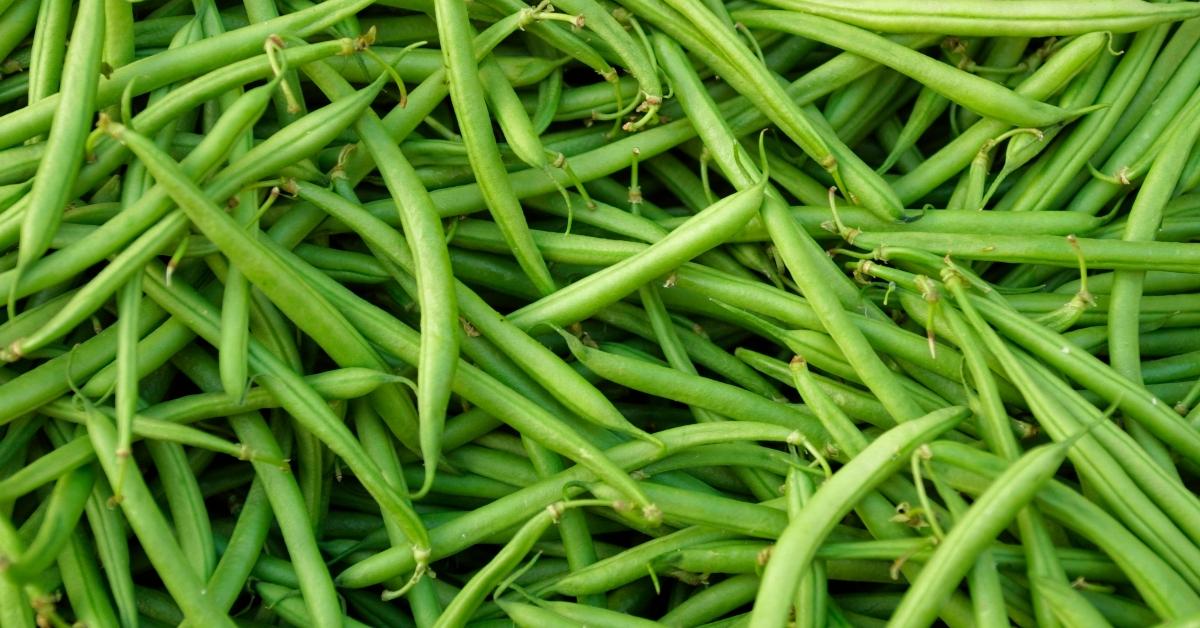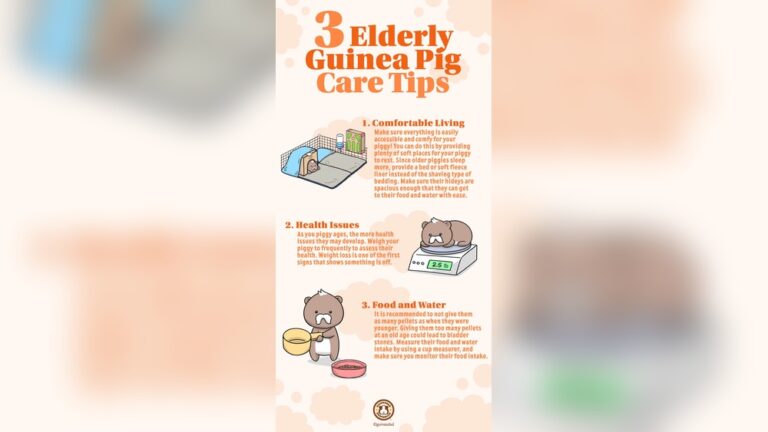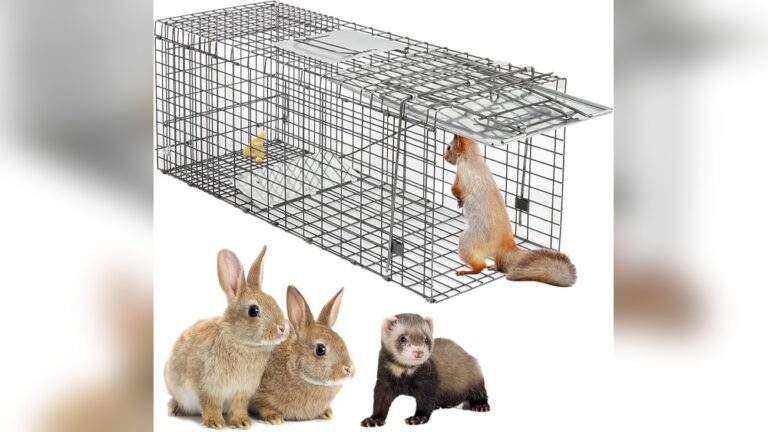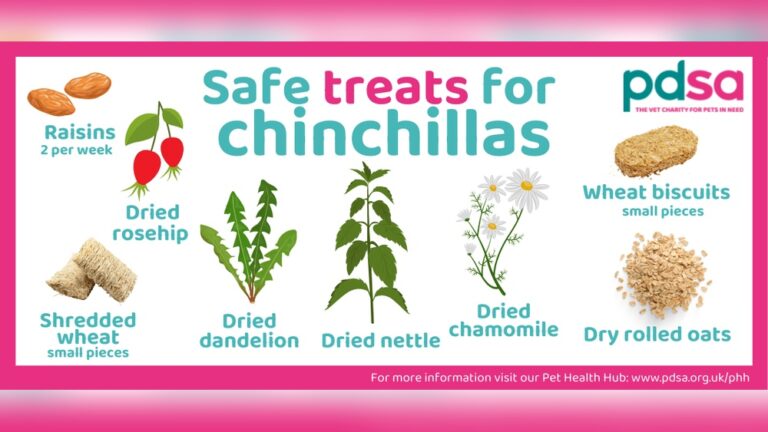Can Guinea Pigs Eat Beans: Surprising Facts You Must Know
If you have a guinea pig, you want to make sure you’re feeding it the right foods. Beans might seem like a healthy snack, but can guinea pigs actually eat beans safely?
Giving your furry friend the wrong food can cause serious health problems. You’ll discover whether beans are a good choice for your pet, what risks to watch out for, and the best foods to keep your guinea pig happy and healthy.
Keep reading to find out exactly what your guinea pig can and cannot eat!

Credit: www.youtube.com
Guinea Pig Diet Basics
Guinea pigs need a balanced diet to stay healthy and happy. Their food must include vitamins, fiber, and fresh water every day. Knowing what to feed your guinea pig helps avoid health problems. Beans, for example, are often questioned. Understanding the basics of their diet is important before adding new foods.
Essential Nutrients For Guinea Pigs
Vitamin C is vital because guinea pigs cannot make it themselves. Fresh vegetables like bell peppers and leafy greens provide this vitamin. Fiber helps their digestion and keeps their teeth healthy. Hay is the main source of fiber for guinea pigs. Protein is needed in small amounts from pellets and some vegetables.
Common Safe Foods
Fresh hay should always be available to guinea pigs. Leafy greens such as romaine lettuce, kale, and spinach are safe choices. Small amounts of carrots, cucumbers, and bell peppers add variety. Fruits like apples and strawberries can be treats but in limited amounts. Clean, fresh water must be given daily.
Foods To Avoid
Some foods can harm guinea pigs and must be avoided. Beans and legumes cause gas and can upset digestion. Iceberg lettuce offers little nutrition and may cause diarrhea. Potatoes and onions are toxic and dangerous for guinea pigs. Sugary or salty snacks should never be given.

Credit: www.greenmatters.com
Types Of Beans And Their Effects
Beans come in many types, each affecting guinea pigs differently. Some beans are safe, while others can cause harm. Understanding the types of beans helps keep your pet healthy and happy.
Guinea pigs need careful feeding because their digestive systems are sensitive. Knowing how beans impact them is important for their diet.
Raw Vs Cooked Beans
Raw beans often contain harmful substances that can upset guinea pigs. Cooking beans removes many toxins and makes them easier to digest. Always offer cooked beans if you choose to feed them. Avoid raw beans to prevent health risks.
Nutritional Content Of Beans
Beans have protein, fiber, and some vitamins. These nutrients can support muscle and digestive health. Yet, guinea pigs need vitamin C from other sources. Beans alone do not provide all needed nutrients.
Toxic Components In Some Beans
Some beans hold toxins like lectins and phytates. These can cause stomach pain or worse issues. Red kidney beans are especially harmful if not cooked well. Always research the bean type before feeding your guinea pig.
Can Guinea Pigs Eat Beans?
Guinea pigs need fresh, healthy food every day. Many pet owners wonder if beans are safe for their small friends. Beans are common in human diets, but are they good for guinea pigs? It is important to understand the effects of feeding beans to these pets.
Risks Of Feeding Beans
Beans contain substances that can harm guinea pigs. Raw beans have toxins called lectins. These can cause serious stomach problems. Even cooked beans may cause gas and bloating. Guinea pigs have a sensitive digestive system. Feeding beans might upset their stomach quickly.
Potential Health Issues
Beans can lead to diarrhea and discomfort in guinea pigs. They might also cause bloating, which is very dangerous. Bloating can stop normal digestion and cause pain. Some beans have high starch that guinea pigs cannot digest well. This can lead to long-term health problems if fed often.
Safe Alternatives To Beans
Guinea pigs enjoy fresh vegetables like bell peppers and cucumbers. Leafy greens such as romaine lettuce and kale are good choices. These foods provide vitamins and fiber without risks. Small amounts of fruits like apples or strawberries can be treats. Always give clean water and hay for good health.
Signs Of Bean-related Illness
Beans can cause health issues in guinea pigs. Recognizing signs of bean-related illness helps keep your pet safe. These signs often show up in digestion and behavior. Acting fast can prevent serious problems.
Digestive Problems
Digestive issues are common after eating beans. Watch for bloating, gas, or diarrhea. Your guinea pig might refuse food or have a swollen belly. These symptoms show discomfort and need attention.
Behavioral Changes
Illness can change your guinea pig’s behavior. They may become quiet or less active. Sudden restlessness or hiding are warning signs. Changes in eating or drinking habits also matter.
When To Contact A Vet
Call a vet if symptoms last more than a day. Seek help if your pet stops eating or drinking. Quick vet care prevents serious health risks. Do not wait if you see severe symptoms.
Best Practices For Guinea Pig Feeding
Feeding guinea pigs well means giving them the right foods in the right amounts. Good feeding keeps them healthy and happy. It helps avoid illness and makes sure they get needed vitamins and minerals. Knowing best feeding habits makes a big difference.
Balanced Diet Tips
Guinea pigs need fresh hay every day. It helps their digestion and wears down their teeth. Add fresh vegetables rich in vitamin C like bell peppers or kale. Avoid too many sugary fruits or starchy foods. Clean water should be available all the time. A small amount of guinea pig pellets can complete their diet. Do not feed beans, as they can cause digestion problems.
Introducing New Foods Safely
Start new foods slowly. Give a small piece first. Watch for any signs of upset stomach or allergies. Wait three to four days before adding another new food. This helps find any food that does not suit your guinea pig. Always wash vegetables before feeding. Avoid any spoiled or moldy food.
Monitoring Your Pet’s Health
Check your guinea pig daily. Look for changes in eating habits or droppings. A healthy guinea pig is active and alert. Teeth should not be overgrown. Weight loss or gain can show health issues. Visit the vet if you see anything unusual. Early care helps prevent serious problems.

Credit: www.guineadad.com
How Smart Pets Lover Can Help You with Can Guinea Pigs Eat Beans
Turning “Can Guinea Pigs Eat Beans?” Into a Learning Moment
Understanding whether guinea pigs can eat beans opens up a great opportunity to dive deeper into their dietary needs and overall health. Reflecting on the Guinea Pig Diet Basics reminds us that these little herbivores thrive on high-fiber, vitamin C-rich foods, while certain beans can disrupt their digestion or cause illness. Recognizing the Signs of Bean-Related Illness isn’t just about prevention—it’s a chance to sharpen your observation skills and respond quickly to your pet’s wellbeing.
For anyone passionate about caring responsibly for their furry friends, exploring these topics side by side fosters confidence and connection. It’s a gentle reminder from Smart Pets Lover’s mission to empower pet parents with practical knowledge, helping you make informed choices that keep your guinea pig happy and healthy. If you’re ever uncertain, consulting a trusted vet or reaching out to pet care communities can provide tailored advice and peace of mind.
Frequently Asked Questions
Can Guinea Pigs Safely Eat Beans?
No, guinea pigs should not eat beans. Beans contain harmful substances that can cause digestive problems and gas in guinea pigs. Their sensitive stomachs cannot properly digest beans, making them unsafe for consumption.
What Are The Risks Of Feeding Beans To Guinea Pigs?
Feeding beans to guinea pigs can cause bloating, gas, and diarrhea. Beans also contain anti-nutrients that interfere with nutrient absorption. These risks can lead to serious health issues in guinea pigs.
Are Cooked Beans Safe For Guinea Pigs To Eat?
Cooked beans are still not safe for guinea pigs. Cooking does not remove harmful compounds in beans. It’s best to avoid beans altogether and offer safe vegetables instead.
What Foods Should Guinea Pigs Eat Instead Of Beans?
Guinea pigs should eat fresh leafy greens, bell peppers, and carrots. These provide essential vitamin C and fiber. Avoid starchy or gas-producing foods like beans for their health.
Conclusion
Beans are not safe food for guinea pigs to eat. They can cause stomach problems and harm your pet. Always choose fresh vegetables and fruits that are good for guinea pigs. Keep their diet simple and healthy for a happy life.
Watch your pet closely when trying new foods. Remember, their health depends on what they eat every day. Choose safe snacks to keep them active and strong. Guinea pigs need care and good food to thrive well.





